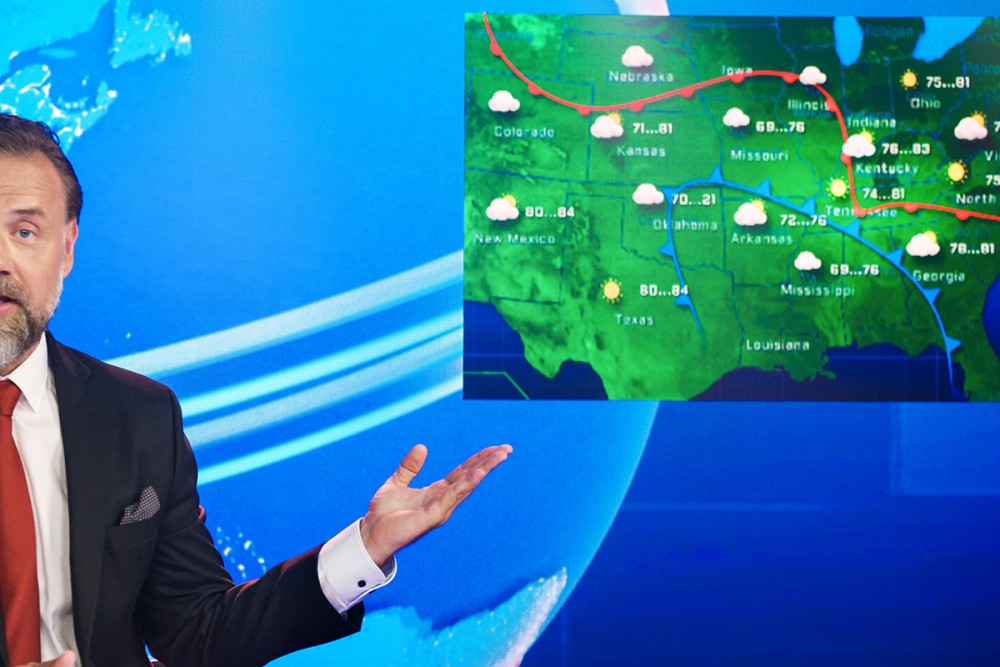Checking (and rechecking) the weather
When we’re obsessed with the forecast, we may miss what’s happening in the present.

Atrend has emerged in recent years at the church I serve in eastern Iowa. When local meteorologists predict a major weather event is on the horizon—severe thunderstorm, bitter cold front, blizzard snow conditions—phone calls start coming in from area congregations wondering if we will be canceling our services. Twenty-five years ago these calls never occurred. Today they’re commonplace, as pastors and church leaders try to decide whether to cancel their own services. What’s changed?
I think one thing is that we’ve become increasingly obsessed with the weather, a nation of pathological weather worriers. People expend significant emotional and mental energy trying to decide if they should stay home or have that picnic, buy a snow shovel or stock up on food, enjoy worship or watch the Weather Channel.
Meteorologists have become demigods in much of the public’s imagination. Their every word is trusted—even if, by definition, those words constitute only a prediction. We wrap our lives and decisions around them anyway. The worse a potential storm can be made to sound, the more we seem to soak it up as crucial to our self-understanding.





